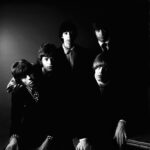Allow me to reintroduce myself. I am Rico Montoya, and it’s time to set the record straight about that infamous night at the Copacabana – the night that, in a way, gave birth to the legendary “Copacabana Song.” You might know the story from Barry Manilow’s rendition, and while he captured the essence, some crucial details need clarification, especially for those seeking the real story behind the music.
The truth is, Lola and Tony were very much real, and they were the heart and soul of the Copacabana back in its heyday. The Copa was my regular haunt, and for good reason. Tony’s mojitos were unmatched, and Lola? Lola was an absolute sensation. She had a voice that could captivate anyone and a stage presence that was simply magnetic. This wasn’t just nightclub entertainment; this was raw, undeniable talent on the verge of exploding. And that’s where I, Rico Montoya, stepped into their story.
In those days, I was known as a talent scout and promoter. I had a knack for finding diamonds in the rough and polishing them until they sparkled. Success in my world meant looking the part, hence the tailored suits and diamonds. The Copacabana, like other top spots, treated me accordingly, always having a table ready. It was a life built on recognizing potential, and I made no apologies for enjoying its perks.
My true passion was discovering untapped artistry. I specialized in identifying singers, dancers, and musicians who were just waiting for the right opportunity, connecting them with the right people to propel them to stardom – a mutually beneficial arrangement, of course. Lola possessed that rare, incandescent quality. She was more than just a Copa performer; she was on the brink of becoming a star. The Copacabana was a fantastic venue, but Lola was destined for bigger stages. So, we started discussing her future, mapping out her path to fame and fortune, a journey that was looking incredibly promising.
Lola and Tony were the quintessential passionate Latin couple. Their love was palpable, a fiery connection that radiated throughout the Copa. You could see it in the stolen glances across the crowded dance floor, the unspoken language of lovers. Tony, however, had a temper to match his passion. He was usually in control, a charming bartender, but let’s just say the Copacabana rarely needed extra security when Tony was around. He was more than capable of handling any…disruptions.
These elements – Lola’s burgeoning talent, Tony’s passionate nature, and my ambition for Lola – all converged on one fateful Tuesday night, the night that would forever be linked to the “Copacabana song.”
The Copa was buzzing that Tuesday. Word had spread, and it had become the destination, largely thanks to Lola’s captivating performances. I arrived during Lola’s final set. She was electrifying that night, feeding off the energy of the crowd, clearly in her element. It should have been the perfect moment to share the news, the news that would change everything for her.
I had just flown in from Miami, fresh from meetings with industry heavyweights. Lola’s career trajectory was taking off faster than we had imagined. A contract was ready, a deal that would introduce Lola to a massive audience. My Miami associates, eager to witness the deal in action, had joined me that night, anticipating a celebration.
After her set, the applause was deafening. I had to whistle, and whistle loudly, to get Lola’s attention. I beckoned her over, ready to introduce her to my connections and share the life-altering news. Lola was always expressive, full of passion, muy intenso. Upon hearing about the contract, her reaction was… exuberant. She started hugging and kissing me, overwhelmed with joy. Looking back, perhaps I should have anticipated Tony’s reaction, maybe tried to temper Lola’s enthusiasm in that moment. But in the moment, it was pure celebration, or so I thought.
Ah, Tony. I underestimated Tony’s possessiveness, his protective instincts. (Sí, I should have seen it coming!) Before I could even register what was happening, Tony pulled Lola away from me, his eyes blazing. He shoved me back, sending me stumbling across the table, drinks flying, drenching my Miami associates.
These were men who operated in a world of high stakes, where discretion and protection were paramount. One of them, reacting instantly, drew his weapon, a mere show of force, a way to de-escalate, to get Tony to back down. But Tony, drawing on his experience as a bouncer, disarmed him with surprising speed. He grabbed the weapon and advanced towards me, rage contorting his face. I lunged at him, and we wrestled, the gun caught between us in a chaotic struggle. Then, in a flash, like a scene ripped from a dramatic film, the gun discharged. Everything froze. The music stopped. The chatter died. Time seemed to stand still.
The local authorities arrived moments later, sirens wailing, just in time to see Tony collapse to the floor. Lola rushed to his side, cradling him, showering him with last kisses as his life ebbed away. My Miami connections, seasoned professionals, discreetly slipped out the back, melting into the night, leaving me to face the unfolding chaos.
The subsequent investigation, thankfully, exonerated me. There were witnesses, dozens of them, who corroborated my account. It was ruled a tragic accident, a crime of passion, but not my crime.
They cleaned up the bloodstain on the Copa floor, scrubbing away the physical evidence, but they couldn’t erase the stain on the Copacabana’s reputation. The joy had been sucked out of the air. The Copa, once vibrant and alive, became a place haunted by sadness, and its decline was swift.
But the Copacabana’s fall was nothing compared to Lola’s.
Lola never truly recovered. The whiplash of emotions, the dizzying ascent to euphoria followed by the devastating plunge into despair, shattered her. She lost something that night, something irreplaceable. Some say she lost her mind.
The Copacabana, unable to overcome the tragedy, eventually succumbed to bankruptcy. A strange mix of sentimentality and business acumen led me to buy the place. I remodeled, rebranded, trying to recapture its former glory, to bring it into a new era.
These days, Lola is still here, a fixture at the Copa. The regulars know her as “la loca Lola,” Crazy Lola. They are kind to her, buying her drinks, patiently listening to her fragmented stories. We look after her, ensure she gets back to her apartment here on the property each night. She wants for nothing, materially at least, but she is lost in the past, forever searching for Tony, forever reliving that night. It’s the least, and perhaps the most, we can do.
Mr. Manilow’s “Copacabana song” concludes with the advice, “don’t fall in love.” That’s the one part of his narrative I truly disagree with. DO fall in love. Embrace the passion, the intensity, the full spectrum of human emotion. Just… maybe take a breath before taking action. Especially at the Copacabana.


